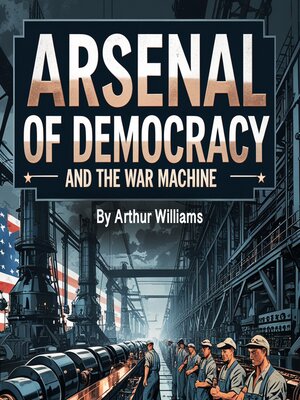
Sign up to save your library
With an OverDrive account, you can save your favorite libraries for at-a-glance information about availability. Find out more about OverDrive accounts.
Find this title in Libby, the library reading app by OverDrive.



Search for a digital library with this title
Title found at these libraries:
| Library Name | Distance |
|---|---|
| Loading... |
This audiobook is narrated by a digital voice.
The transformation of the United States from a peacetime economy focused on domestic production and consumption to the world's dominant military-industrial powerhouse during World War II represents one of the most remarkable organizational and technological achievements in human history. This mobilization effort, which President Franklin Roosevelt famously characterized as making America the "arsenal of democracy," required fundamental changes in how the nation organized its economic resources, industrial capacity, and human capital to meet the unprecedented demands of global warfare while maintaining essential civilian production and social stability.
The pre-war American industrial base in 1939 possessed enormous potential capacity but was organized primarily around civilian consumer goods, with limited experience in large-scale military production beyond the modest requirements of a peacetime military establishment. The Great Depression had left significant unused industrial capacity and unemployment that could potentially be redirected toward military production, but the transition from civilian to military manufacturing required substantial retooling, new technologies, and fundamental changes in production processes that would challenge American industry's adaptability and innovation capabilities.
The strategic recognition of America's potential role as a supplier to Allied nations fighting against Nazi Germany began even before formal American entry into the war, as the Roosevelt administration gradually moved away from strict neutrality toward policies that would support Britain and other allies through programs like Lend-Lease. These early assistance programs provided valuable experience in ramping up military production while also creating political and economic momentum for the larger mobilization effort that would follow after Pearl Harbor brought the United States directly into the conflict.







